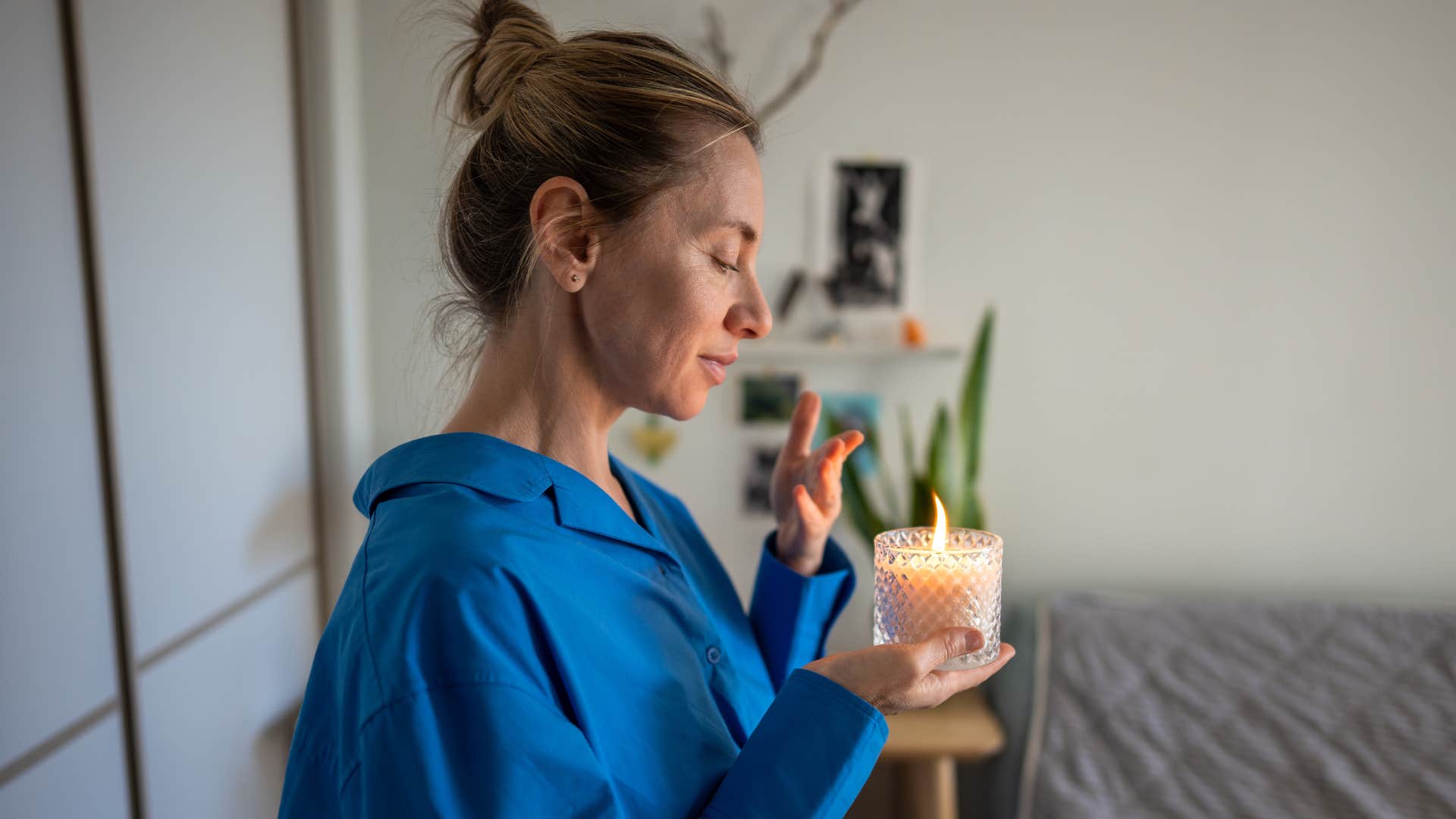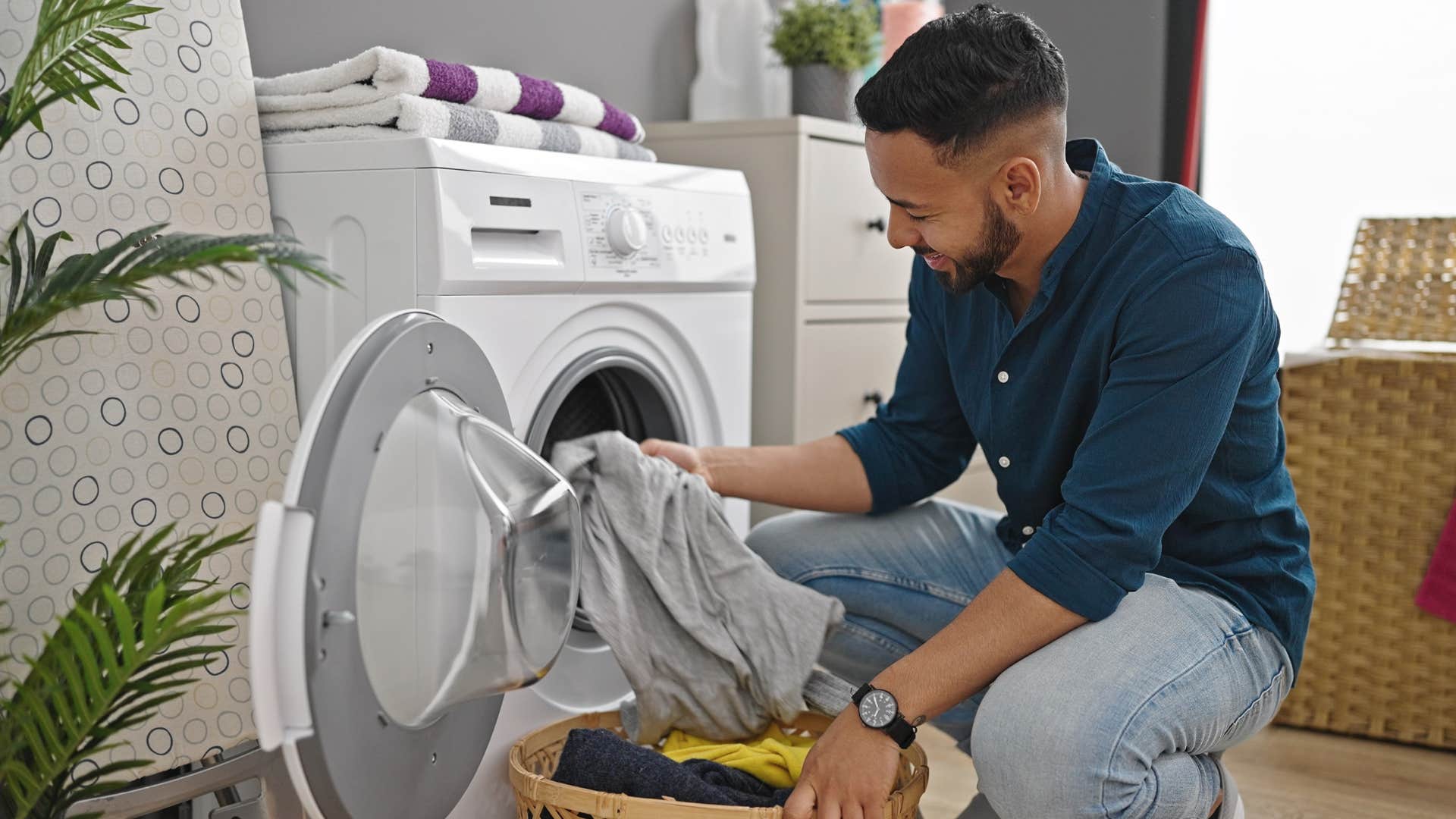Your Parents Raised You Right If You Refuse To Have These 11 Things In Your Home
Are you introducing stress and chaos into your life by allowing these things into your living space?
 antoniodiaz / Shutterstock
antoniodiaz / Shutterstock When your parents raised you right, there are certain things you know you need to do for the sake of your well-being, including refusing to allow certain things into your home. The relationship between childhood experiences and adult success is impossible to ignore. Even small and subtle things, like setting boundaries and doing chores, can make a difference in your entire state of being.
From the people you let into your home to the painting you choose to fill your wall space, the lessons your parents taught you as a kid greatly influence the ways you live your adult life and decorate your living space. Even the things you intentionally choose to remove from your home are important.
Your parents raised you right if you refuse to have these 11 things in your home
1. Wasted food
 Rawpixel.com | Shutterstock
Rawpixel.com | Shutterstock
Educating kids about food waste and intentional food habits is incredibly important for parents to do early in their lives, but it’s also important to consider the healthiest ways to have these conversations without promoting restriction or indulgence. For example, parents who make their kids clean their plates aren’t necessarily promoting a healthy relationship with food at home, but if they were to simply have a conversation or even be more intentional with portion sizes tailored to each of their kids, that could set them up for later success.
Your parents raised you right if you refuse to waste food at home, not just because you have a healthy relationship with food, but because you’re intentional about planning meals, only buying what you need, and being intentional about what kinds of food you’re putting in your home.
2. Decorative furniture
 Perfect Wave | Shutterstock.com
Perfect Wave | Shutterstock.com
You’ll never see a couch in plastic or a room with solely decorative furniture in the home of someone who was raised right. They value social connection, vulnerability, and being present in ways that tend to overflow into their living spaces and home decor choices.
They’d much rather have a nook of comfortable couches with signs of love through wear than a sterile environment that urges people to feel stiff, rigid, and uncomfortable. When we prioritize human connection, even if it’s just with ourselves in a safe living space, everything changes for the better in our lives.
3. Clothes that don’t fit
 Krakenimages.com | Shutterstock.com
Krakenimages.com | Shutterstock.com
Goal clothes, clothing items that no longer fit, but are intended to serve as a goal for weight or body changes, are not only toxic to mental health and self-esteem, they’re incredibly misguided in actually motivating people to make a change.
According to therapist Rachel Goldberg, having goal clothes intended to motivate you to make a lifestyle change or lose weight almost always has an adverse effect on true change. They not only consistently remind you of your perceived shortcomings, but they make weight loss a reward-punishment experience, rather than an intentional journey of ups and downs.
If you were raised right, chances are you have a healthy relationship with food, your body, and health in ways that don’t revolve around criticism, comparison, and restriction like goal clothes urge people to adopt. In addition to health and weight loss, many secure adults with positive childhood experiences don’t feel the need to grow attached to material things that don’t serve them anymore. They’re comfortable getting rid of old clothes and focusing on the present moment.
4. Mounds of unopened mail
 Voronaman | Shutterstock.com
Voronaman | Shutterstock.com
Several things may keep people from opening their mail right away, from childhood trauma to ADHD, and even general stress, but your parents raised you right if you refuse to let mail pile up in your entryway.
You were taught to face things head-on, sit with your discomfort, and regulate your emotions as they came up, so as an adult, fearing a bill in the mail or a letter from someone you’re nervous to speak with doesn’t keep you from opening your mail. It just prompts a bit of self-soothing and healthy self-reflection.
5. Decorative candles
 DimaBerlin | Shutterstock.com
DimaBerlin | Shutterstock.com
Any kind of home decor that’s entirely for show or too fancy to actually use is exactly the kind of thing people who were raised right refuse to have in their homes. When they splurge on a nice olive oil, buy an expensive candle, or get gifted a nice furnishing, they actually use and enjoy it.
They don’t wait for a special occasion to have a moment of luxury and intentionality. They know that life is too short to avoid living in the present moment and appreciating what you have today.
6. Harsh lighting
 New Africa | Shutterstock.com
New Africa | Shutterstock.com
Studies show that the lighting you choose for your living space can have drastic effects on mood, productivity, and mental well-being. For some people, a blend of white and yellow lights is the perfect concoction for peacefulness, while still cultivating a productive space. For most, soft, warm, and yellow lighting is the way to go — it not only makes people feel more secure and comfortable, but it’s also less rigid and sterile compared to white lighting.
Your parents raised you right if you refuse to have things like sterile lighting or decorative furnishings in your home simply for the sake of fitting in with expectations of cleanliness and style. You prefer to craft an intentional space tailored toward your routine, personhood, identity, and habits, rather than someone else’s ideas about trendiness.
7. Dirty dishes
 Drazen Zigic | Shutterstock.com
Drazen Zigic | Shutterstock.com
Your parents raised you right if you refuse to let dirty dishes linger in the sink for days at home. Of course, the practice of regularly doing chores is something great parents instill in their kids, but they’re also intentional about never avoiding discomfort or conflict. They teach their kids to accept and sit with their discomfort, rather than trying to avoid it, even if it’s doing dishes, laundry, or having a hard conversation with a sibling.
While it might’ve still been a chore for you as a kid, a study published in the Mindfulness journal argues that washing dishes can actually be the perfect way to reduce stress after a chaotic day. So, you’re not only maintaining a level of cleanliness and intention at home, you’re also simultaneously reducing stress and showing up as a more grounded person in your living space.
8. Intrusive technology
 Studio Romantic | Shutterstock.com
Studio Romantic | Shutterstock.com
Many great parents taught their kids how to create, maintain, and respect boundaries from a young age, many of which they likely still implement in their routines today. From respecting each other’s privacy, to keeping their space clean, and even having honest conversations with each other, the lessons parents offer up to their kids early in life are fundamental to their success in adulthood.
This respect for boundaries, specifically surrounding privacy and trust, is part of the reason why cameras and other intrusive technologies aren’t something people raised right are willing to keep in their homes. While a pet monitor might be present, having cameras that monitor their kids or keep an eye on their roommates is not only detrimental to mutual respect and trust, but also creates an unstable, anxious, and stressful environment. When other people come into their home, they also feel safe and comfortable, knowing they’re not being watched or recorded when they don’t realize it.
9. Visual chaos
 Krakenimages.com | Shutterstock.com
Krakenimages.com | Shutterstock.com
According to psychology professor Joseph Ferrari, having too much clutter in your home can cause stress in ways that not only negatively impact personal well-being and mental health but also spark strain and tension in relationships. When you ignore doing chores, let unused clothes pile up in closets, and try to hide clutter, rather than dealing with it straight away, you’re sabotaging the kind of peace your living space should promote.
However, great parents teach their kids the importance of doing their chores and addressing things head-on — they’re never stepping around clutter or avoiding a mess at home, unless it’s actively helping them focus or engage in creative endeavors, like a study published in the Psychological Science journal suggests can be occasionally healthy.
Visual chaos is one of the things smart people with great parents never let go unresolved in their homes, which is why they also tend to have a more balanced mental state, emotional clarity, and healthy relationships.
10. Meaningless artwork or decor
 Prostock-studio | Shutterstock.com
Prostock-studio | Shutterstock.com
Home decor holds a lot of meaning in our living spaces, according to psychology professor Sam Gosling, in ways that sometimes go overlooked. For example, if you grew up with parents who encouraged you to fit a certain standard or appeal to other people’s comfort, rather than your own, you may find yourself decorating your living space as an adult outside of your own expression and sabotaging your well-being.
These adult children are buying paintings because they’re trending, adding furnishings that feel cool to everyone else, and even hiding the kinds of things, from their favorite books to video game consoles or signs of wear, that appeal to their own identity and humanity.
However, your parents raised you right if you refuse to appeal to other people when decorating your home and instead view your spaces as a kind of self-expression that cultivates comfort, security, and peace. Your space, home decor, and artwork reflects who you are, creates mental clarity, and serves as a place for daily self-love practices and creativity in ways that trying to “fit in” with others does not.
11. Negative energy
 Prostock-studio | Shutterstock.com
Prostock-studio | Shutterstock.com
Your parents raised you right if you refuse to have negative energy in your home, whether it’s physical clutter, toxic relationships, or avoidant energy that causes unresolved conflicts to transform into resentment and tension. If your living space is truly a safe space, where you feel comfortable being your authentic self, open up to relationships inside, and have conversations that serve you, rather than stress you out, chances are your parents taught you the importance of emotional intelligence and being intentional about your living space.
Things you don’t need, use, or love aren’t kept around for years, piling up and causing emotional turmoil. Tension and conflict don’t go unresolved with parents, family, or even roommates longer than it needs to. You may even introduce mental clarity and positivity into your space with natural light, plants, and the right decor.
Zayda Slabbekoorn is a staff writer with a bachelor’s degree in social relations & policy and gender studies who focuses on psychology, relationships, self-help, and human interest stories.

